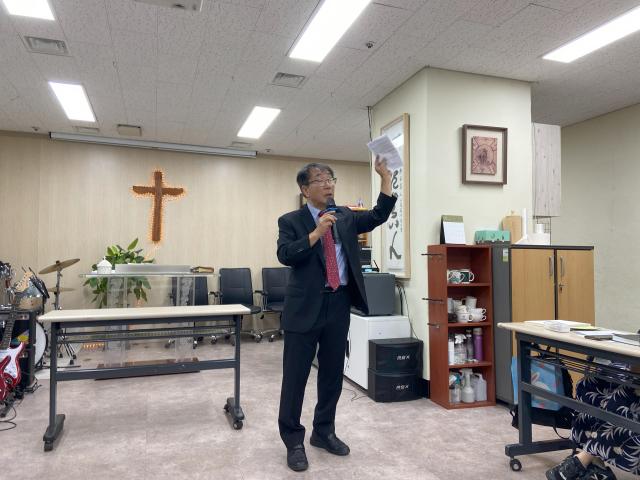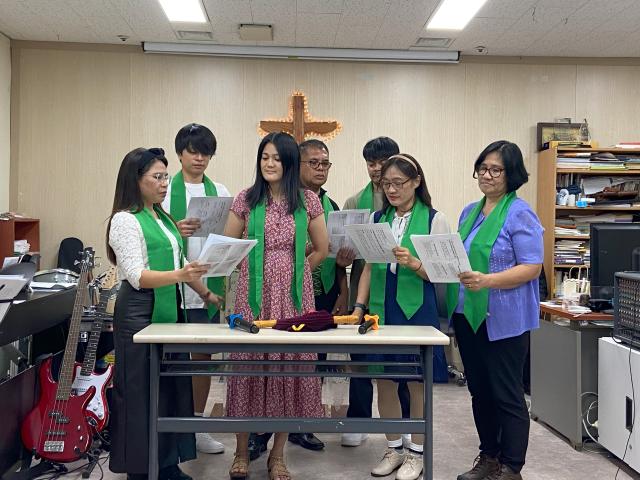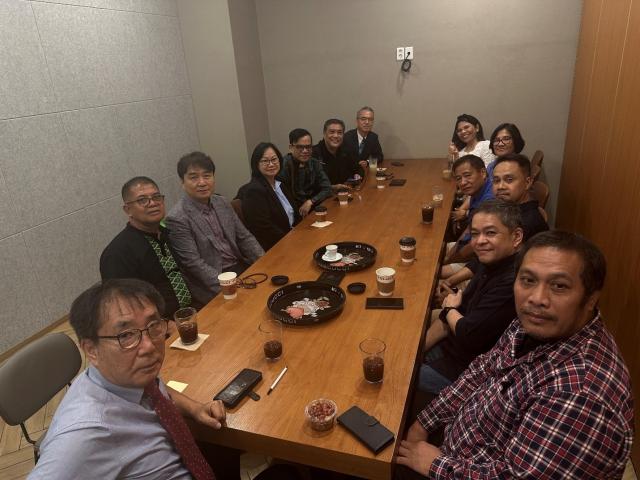Rev. Won Hur shares the story of a church in Korea providing ministry to vulnerable Filipino migrant workers.

According to the prophets, the litmus test for faithfulness comes down to how one treats the lowest and the least in the society. This is often where the church needs to be—to show the love of God to the most vulnerable. I was privileged to be at such a church, in downtown Seoul, Korea, in the basement of an office building. The name of the church was Seoul Diaspora Church, mainly serving Filipino migrant workers. There I met a middle-aged woman who came to Seoul for a doctoral degree in theology. I also met two brothers who had come to Seoul from Nepal to study. The minister of the church is Rev. JEONG Jinwoo, a man who started this church back in 2016 as the Mustard Seed Church and who is still going strong in his sixties. He led the service with jovial disposition and friendliness that made all feel welcome and at ease.

On this Sunday, during the service, it recognized the anniversary of the martial law that was declared in 1972 in the Philippines that ushered in brutality and suffering to the people. The proverb, “Where there is no vision the people perish,” (Proverbs 29:18, KJV) became a reality in the Philippines. The country suffered under the brutal dictator Ferdinand Marcos. Human rights activists were jailed and killed. Economy stalled. Many Filipinos left and still leave the country to work all over the world and they send money back home. Many have come to South Korea as migrant workers, many without proper documentation, often exploited for their lack of status.

After the service, a meeting was arranged in a coffee shop to meet with Filipino church members, who work in factories, and who also lead organizations to advocate for better rights, protection, and support. It is not an easy life toiling away in a land far away from their family and friends back home, but this is a reality for them. They work, struggle, and try to organize their community in order to make life more bearable for others. The United Church of Christ in the Philippines has also sent a community organizer to support and advocate for the migrant workers.
The church not only meets spiritual needs, but also social needs as well. After each Sunday service, different groups in the church bring homemade Filipino food to share with others. It allows for the people to stay, mingle, eat their home food, and appreciate the joy of one another’s fellowship. It is a communion where God is present among the people. The church also provides Bible studies, classes in Korean language, provision of access to free medical and dental care, legal support, a revolving credit fund, a community garden, congregational recreation activities, and acts in solidarity for human rights protection in the Philippines, and other Asian countries.
The church is a place of belonging, solidarity, and embodies what faith is all about. I can see this through the minister Rev. JEONG who has a deep love for the people. The Seoul Diaspora Church plays an important role as a spiritual home where the migrants can be nourished by God who suffers with people, who is on the side of the oppressed seeking justice, and who give hope to the hopeless. The Diaspora Church demonstrates to others how the outsiders, who have no status, legal protection and rights, need to be treated. Such is the substance of the gospel. The experience also asks questions for us back in Canada. How are we treating the outsiders, the ones without social status, the lowest and the least in our society? How are they welcomed in our churches? As the prophets have reminded us, it is the very substance of our faith.
Your gift of Mission and Service enables solidarity with the Seoul Diaspora Church in their prophetic and compassionate ministry.
—The Rev. Won Hur is Global Partnership Program Coordinator, Asia, in the Church in Mission Unit, at the General Council Office.
Note: The Seoul Diaspora Church celebrated “25 Years of Sacrifices and Struggle of Filipino Immigrants in Korea” on October 27, 2024 (two minute video).
The views contained within these blogs are personal and do not necessarily reflect those of The United Church of Canada.